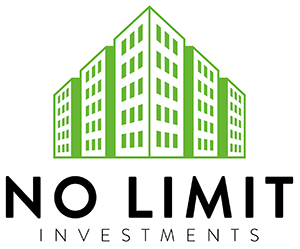What Makes Real Estate Investing a Smart Choice for Beginners?
Many beginners wonder why real estate is one of the most recommended ways to start building wealth. Unlike stocks that fluctuate daily, real estate provides both tangible assets and multiple income streams, rental income, appreciation, and tax advantages. According to the U.S. Census Bureau, homeownership remains one of the strongest drivers of household wealth, with property owners holding 40 times more net worth than renters (U.S. Census Bureau, 2020).
For new investors, real estate is also flexible. You can start small, such as purchasing one rental unit and scale gradually. What matters most is understanding how financing, property management, and market conditions align with your long-term financial goals.
How Should Beginners Set Realistic Goals in Real Estate?
Beginners often fail not because they lack opportunities, but because they fail to define clear, realistic goals. Before buying a property, ask yourself:
- Do I want consistent cash flow or long-term appreciation?
- Am I interested in short-term projects like fix-and-flip, or building a rental portfolio?
- How much risk am I willing to take?
Goal setting creates direction and prevents costly mistakes. For example, if your goal is steady income, a buy & hold mortgage paired with a well-selected rental property may serve you better than attempting your first fix-and-flip. On the other hand, if you are willing to renovate quickly for higher short-term profits, a fix & flip loan could provide the capital needed to get started.
What Financing Options Should Beginners Consider First?
Financing is one of the biggest barriers for beginners, yet it is also the key that unlocks growth. Traditional banks often impose strict requirements, but alternative investment financing offers flexibility designed for non-owner-occupied properties.
Some financing strategies include:
- Fix & Flip Loans: Ideal for short-term projects where you purchase, renovate, and sell quickly.
- Buy & Hold Mortgages: Suited for long-term investors seeking consistent rental income.
- BRRRR Financing: Buy, Rehab, Rent, Refinance, Repeat—a strategy that lets beginners recycle capital to scale portfolios faster.
- Cash Out Refinance: Enables you to leverage equity in one property to invest in another.
- DSCR Loans: Approval based on rental income rather than personal income, giving more flexibility to investors.
- New Construction Loans: For those looking to build from the ground up.
These solutions are not just for seasoned investors—beginners can use them to tailor financing to their specific goals. For detailed options, you can explore real estate financing solutions offered by trusted providers like No Limit Investments.
How Can Market Research Help Beginners Avoid Costly Mistakes?
Research is one of the most powerful tools for beginners. Markets differ widely, and a profitable investment in one city could be a financial disaster in another.
Key factors to analyze include:
- Employment growth and job stability: Areas with strong employment often support higher rental demand.
- Population growth: Expanding communities indicate increasing housing needs.
- Neighborhood dynamics: School ratings, transportation access, and amenities influence rental and resale values.
According to the U.S. Department of Housing and Urban Development (HUD), affordable housing trends and rental demand are strong indicators of investment opportunities (HUD, 2023). Beginners should avoid emotional decisions and rely on data to identify sustainable growth markets.
What Role Does Risk Management Play for New Investors?
Beginners often underestimate risks in real estate. Market downturns, vacancy rates, and unexpected repair costs can erode profits quickly. Risk management strategies include:
- Maintaining emergency reserves for unexpected repairs.
- Diversifying across property types (single-family, multi-family, short-term rentals).
- Securing the right insurance policies to protect investments.
- Using financing wisely: A DSCR loan, for example, bases approval on rental income, ensuring the property itself supports the debt.
By being proactive, beginners can protect their portfolios from common pitfalls.
How Can Beginners Build Passive Income through Rentals?
Rental properties remain one of the simplest ways for beginners to build wealth. Passive income provides stability and can offset the costs of financing. The key is cash flow analysis, making sure rental income exceeds monthly expenses.
Beginners should calculate:
- Loan payment (principal + interest)
- Property taxes and insurance
- Maintenance reserves
- Vacancy allowance
When the numbers show consistent profit, the property is a candidate for long-term wealth. Tools like buy & hold mortgages and BRRRR financing help make this approach achievable even for those with limited upfront capital.
How Do Beginners Use Equity to Grow Their Portfolios?
Equity is one of the most powerful wealth-building tools in real estate. Beginners can unlock it through cash out refinancing, where built-up value in a property is reinvested into additional properties.
For instance, after rehabbing and renting a property, you may refinance it at a higher valuation. This frees up cash to purchase another investment without selling the first property. Over time, leveraging equity allows you to expand your portfolio without tying up personal savings.
What Professional Support Do Beginners Need?
Even though real estate investing can be done independently, beginners benefit greatly from professional guidance. Key professionals include:
- Real estate agents specializing in investment properties.
- Lenders and financing experts who provide tailored solutions such as fix & flip loans, DSCR loans, or new construction financing.
- Property managers to handle tenant relations and maintenance.
Partnering with the right experts provides a learning curve and prevents costly mistakes. Resources like No Limit Investments exist specifically to guide new investors through financing strategies and portfolio growth.
How Can Beginners Start Small and Scale Over Time?
The best strategy for beginners is to start small and scale strategically. Purchasing one rental property, experimenting with a flip, or exploring BRRRR financing allows you to gain experience while minimizing risk.
Over time, reinvesting profits, leveraging cash out refinancing, and using real estate financing solutions provide the tools to grow steadily. Consistency and patience matter more than quick wins.
Why Should Beginners Choose Trusted Financing Partners?
Financing is the backbone of growth in real estate. Without the right support, beginners may face rejection, high interest rates, or limited opportunities. Choosing a trusted financing partner ensures:
- Access to tailored loan products for different strategies.
- Guidance on loan-to-value ratios and equity strategies.
- Long-term support for portfolio expansion.
This is where a platform like No Limit Investments plays a crucial role by offering solutions designed for both beginners and seasoned investors.
Where Can You Begin Your Real Estate Journey Today?

If you are ready to take the first step into real estate investing, don’t go in blind. Equip yourself with the right financing strategies and professional support. Whether you’re considering your first fix & flip, exploring BRRRR financing, or looking into DSCR loans, the right partner can make all the difference.
Visit No Limit Investments today to explore flexible financing solutions tailored to beginners and experienced investors alike. Start small, build smart, and scale your wealth with confidence.
Final Thoughts
Real estate investing for beginners doesn’t have to be overwhelming. By setting clear goals, researching markets, managing risks, and leveraging tailored financing options, anyone can build a strong foundation for long-term wealth. With the right strategies and the right partner, your first step into real estate can turn into a lifelong journey of financial growth.
Works Cited
U.S. Census Bureau. Wealth and Asset Ownership. U.S. Department of Commerce, 2020, www.census.gov/topics/income-poverty/wealth.html.
U.S. Department of Housing and Urban Development (HUD). Rental Market Trends and Housing Demand. HUD, 2023, www.huduser.gov/portal/datasets/rental.html.
Frequently Asked Questions:
- What is the best financing option for real estate investing for beginners?
The best option depends on your goals. If you want steady long-term income, buy & hold mortgages work well. If you are interested in flipping homes, fix & flip loans may be the better choice. For those who want to recycle their capital, BRRRR financing is a strong strategy.
- How can I invest in real estate if I don’t have much savings?
Beginners without large savings can still get started through financing tools like DSCR loans, which qualify you based on rental income rather than personal income, or through cash out refinance, which lets you leverage equity from one property to fund another.
- What risks should beginners watch out for in real estate investing?
Common risks include unexpected repair costs, vacancies, and market downturns. Beginners should prepare by keeping an emergency fund, analyzing rental cash flow before purchase, and considering insurance. Partnering with financing experts such as No Limit Investments can also reduce risks by providing tailored loan options.
- How does the BRRRR strategy help beginners grow a portfolio?
The BRRRR method, Buy, Rehab, Rent, Refinance, Repeat, allows beginners to reinvest equity from one property into another without selling. With BRRRR financing, investors can expand their portfolios faster while maintaining ownership of existing rental properties.
- Where can I find trusted support to start real estate investing?
Beginners should work with professionals who understand real estate financing. No Limit Investments offers services such as fix & flip loans, buy & hold mortgages, DSCR loans, cash out refinancing, new construction loans, and other real estate financing solutions tailored for both new and experienced investors.







